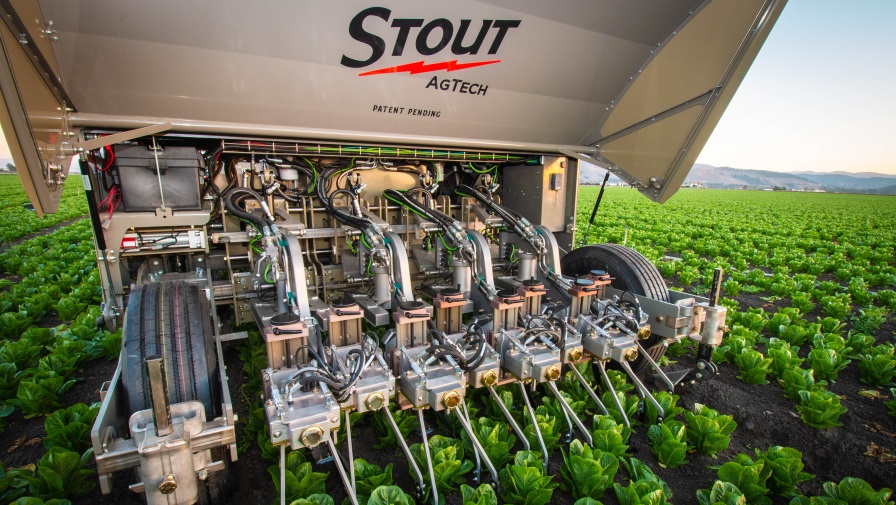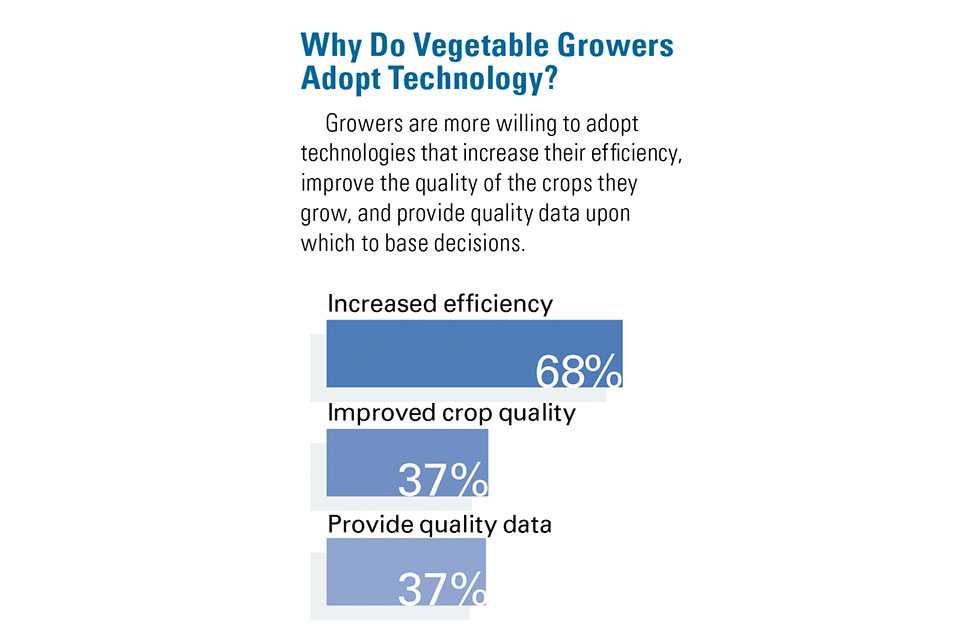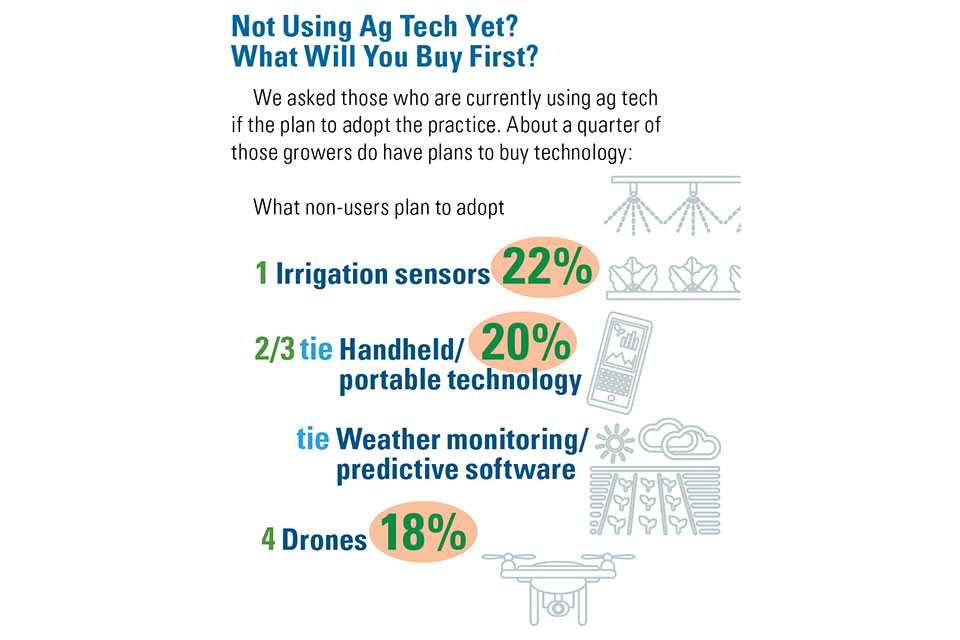Which Ag Technology Is Most Popular with Vegetable Growers?
Results from American Vegetable Grower’s annual State of the Industry grower survey are in and tabulated. When it comes to technology adoption at the grower level, the numbers indicate that it remains a bit of a mixed bag at the moment.
Year over year technology adoption (360 total responses, up from 293 in 2019) remains relatively flat with a slight decrease, as 43% of growers indicated they will use some form of precision tools to produce a crop this year as opposed to the 47% that answered that same question affirmatively in 2019.
Specifically, weather monitoring/prediction software (40%), auto steer (39%), and GPS guidance (38%) remain the most popular precision tools being used today in the specialty grower market. At the other end of the spectrum are technologies like remote connectivity for equipment troubleshooting (4%), data telemetry systems (5%), and logistics software (6%). Drones for scouting, always a hot topic among growers, came in at 18% among respondents, while spray drones will be used by just 9% of the audience in 2020.
Understanding the why of what drives most growers to adopt new technologies is often just as important as knowing the specific tools growers are using. A sizeable chunk of the audience, just a shade over two thirds (68%), say they adopt technologies that drive efficiency in their operations. And exactly 37% of respondents indicated “improved crop quality” and “wanting more data to help with decision making” as additional reasons to bring new technology onto the farm.
So, develop a technology that makes farmers more efficient, helps crops taste and look better, and also provides accurate and useable data to the farmer, and potentially you’ve got an ag tech home run for farmers.
Grower Plans for Future Adoption
Technology providers will be keenly interested in the responses to our question asking growers why they have not adopted precision agriculture technologies.
Among the 58% who do not currently use technology, half believe their operation is too small to support investing in tech, while 31% indicated either the technology itself is too expensive or they just don’t feel they need it to continue producing a marketable crop.
We followed up with this group, asking if they plan to adopt precision technologies within the next five years.
A decent number (25%) said they will. But that is a smaller group than those answering the same question in 2019. Back then 34% said they will adopt technology.












